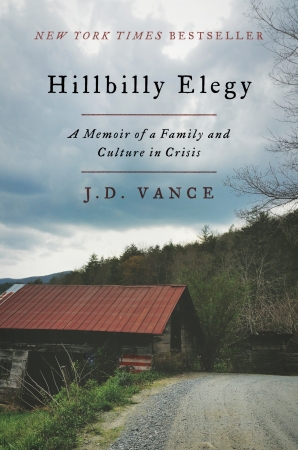Advertisement
Commentary
Who Is To Blame For The Plight Of The Working Class?

The headline economic news last week was that the country gained more jobs than anyone expected in June. The unemployment rate still crept up. And that was good. Except that it wasn’t.
If you can follow all that, you have a bright career as an economist ahead of you.
June’s 10th-of-a-percentage-point increase in the jobless rate, to 4.4 percent, was hailed by experts as a signal that more people are looking for work, feeling confident about the economy. But the experts also noted the report’s finding that wage stagnation continued its longstanding run.
That matters because of the news behind the headlines: Years of low-paying jobs reportedly drive the soaring “deaths of despair," from suicide and substance abuse, ravaging the white working class.
Who rigged the economy to so lethally shortchange America’s Ralph Kramdens and Roseannes?
Two explanations, each with a different culprit, have gained steam of late. One, from Donald Trump, is another example of what comes out of his bigot spigot. The other is from the working class itself and, though inadequate, hints at what we might do going forward.
Who rigged the economy to so lethally shortchange America’s Ralph Kramdens and Roseannes?
The president of the United States blames nefarious foreigners for screwing white workers. When he announced our withdrawal from the Paris climate accord, Trump called it “the latest example” of agreements unfairly disadvantaging U.S. workers, a goal of “foreign capitals and global activists that have long sought to gain wealth at our country’s expense. …. We don’t want other leaders and other countries laughing at us anymore.”
As usual with Trump, his scare talk is more than the facts will bear. The trade deals his comments referenced have, at worst, been only one contributor to a growing inequality that would have happened anyway. An alternative explanation comes from a man who was born into and escaped the working class.
J.D. Vance’s 2016 "Hillbilly Elegy" became the must-read of the Age of Trump for its account of the author’s upbringing amid the want and family dysfunction of the Kentucky and Ohio white underclass. As Vance’s mother was a substance abuser who cycled through men, he was raised and salvaged by his formidable grandmother. Mamaw, as Vance called her, was hardly Princess Grace of Monaco; when her alcoholic husband defied her warning never to come home drunk again, she set him on fire as he slept it off. (He survived.)
Advertisement
But it was Mamaw, Vance writes, who showered love on her grandson and wisely encouraged the hard study and school work that punched his ticket to Yale Law School and out of his dead-end life. Vance blames white workers’ plight on a self-destructive culture that rejects precisely the values needed to succeed, from thrift (“we spend our way into the poorhouse” with unnecessary purchases) to book-learning (“we don't study as children, and we don’t make our kids study when we’re parents.”)
Academic research corroborates how bad choices, even by people with the best intentions, contribute to poverty. “People sometimes ask whether I think there’s anything we can do to ‘solve’ the problems of my community,” Vance writes. "I know what they’re looking for: a magical public policy solution or an innovative government program. But these problems of family, faith, and culture aren’t like a Rubik’s Cube, and I don’t think that solutions (as most understand the term) really exist.”

A friend who worked for the White House and cares about workers suggested to Vance that their problems probably will always exist, “but maybe you can put your thumb on the scale a little for the people at the margins.” Vance applies his thumb, suggesting tweaks to the safety net.
My own take is that forces beyond any individual’s control, including the increased demand for education in the information age, abet bad personal choices. So we need to use both thumbs on the scale, from providing free public university tuition and jobs-creating public works to federal support for healthier food production and, perhaps, a basic income for the poor (assuming a pilot program proved, contra Vance, that most poor people would handle their money well).
But I take Vance’s point that there will be some people who are beyond the help of even the best-crafted programs. Libertarian types foolishly fixate on government failures and assume they invalidate the whole notion of public help. (We don't repeal laws against murder, even though they don't prevent every killing.) Across the divide, some progressives seem to think that solving every national problem is merely a matter of pulling the right government lever.
We should never let the inevitable setbacks abort our efforts to help those in need. But we should also heed the wisdom once offered by the late political journalist Jack Germond: Some problems in this life are insoluble.
